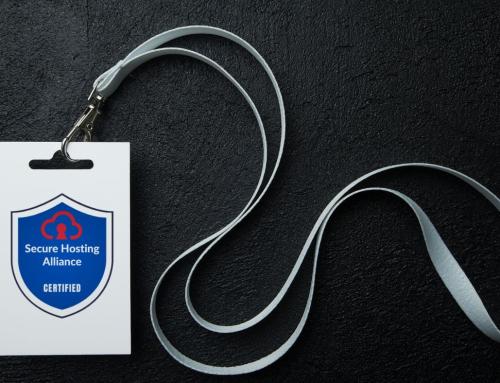Image by blacknight via Flickr
We’re delighted to finally be able to offer Awstats statistics for all our shared Linux based hosting accounts (it’s also available for Windows).
If your site is hosted on any of our shared Linux hosting accounts you can now setup Awstats via your control panel
NB: Stats will not be viewable for 24 hours after setup, as the logs will need to be processed first.
We’ve also made available a screencast showing you how to set it all up in your control panel.
Since I’m a strong believer in making things as easy as possible where I can, you’ll also find that our screencasts are available via iTunes as well.
If anyone has any feedback on the screencasts please do let us know.
7 Comments
Comments are closed.







I have just one word: win.
Now I can finally see separate stats for all those different domains and subdomains on my hosting!
michele,
could you set out on blacknight page
the different advantages of choosing either windows or linux – the different options available with each via blackknight
(good to have the choice by the way)
also
another suggestion
allow source code editing online
I just registered a package having been told I can edit html source code online
– but not possible.
Pity, all other control panels (around 4-5) I have used w different hosters have it.
Great for quick code fixes without having to download/upload
(and also, public computers dont necessarily allow FTP etc).
Peter
Would a side by side comparison work?
To be perfectly honest there are only a very small number of differences between the two at this stage ie. asp / asp.net and the choice of URL rewrite engine. I’ll see what else I can dig up
As for the file editing – sorry about that. I think that we did have that option up until the software vendors did an update a couple of months ago. I believe we’ve been asking them to restore that functionality, but will raise it with our CTO
Thanks for your feedback
Michele
Thanks for the quick reply,
re linux and windows
yes side by side a good idea, even if they are similar
(I guess others like myself would wonder if there was any difference, when they are making the choice….it might also say what if any advantages each might have simply as server systems, in current updates, if that’s relevant)
re file editing online
yes great to look into that
The simple text editor window type, with “view code” + “edit code” modes would do, preferably with line numbers along side (so one can find designated line errors in script quickly)
There is another possibility along the lines of unix style shell editing in some control panels but needs techie skills and server admins usually more restrictive about it
Peter
I’ll look into the comparison page – it’s probably not a bad idea 🙂
As for the file manager – I’m not sure if / when we’ll be able to facilitate this, as we’re at the mercy of a software vendor, however I will raise it with them
Thanks for your input
Michele
Would like to add that the content management is impressive with the site builder,
and particularly with the blogs and web applications easy use and advice – now why should I not be surprised about that 🙂
photo/file storage:
OK so to add to that:
Easy storage of say Word files and photos that you don’t want online:
After all, one has digital storage space.
On other file managers that’s possible, before getting into the website root level storage
eg theres a “web” and “logs” folders at that top level, where one can also simply dump any files for storage (without having them online, whatever about search engine blocking etc).
Alternatively, there might be a completely separate file storage folder for such items which might become usable on blogs on websites, with some transfer option to those sections.
Re File editing online
Good to see that file uploads, of a couple of files at a time, is possible (without FTP) by clicking on a button.
The natural reply might be, to my query about editing online,
is that you should do it on your computer anyway, having a safe copy there and simply uploading it:
However, logging in from different computers and devices that might not always be possible.
Also, PhP and similar pages in particular require partitioned disks, local server installation etc, to see the results locally,
and it’s overall a quicker fix, when one might take a safety copy later (and have a copy online)
Ok thanks again for considering these possibilities!